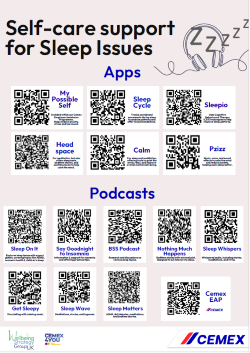Sleep is a critical component of overall health and well-being. Here are some statistics highlighting sleep patterns and issues in the UK:
- Prevalence of Sleep Problems: Approximately 30% of UK adults experience sleep problems. Additionally, 10% suffer from chronic insomnia, characterised by difficulty sleeping at least three nights a week for over three months.
- Sleep Duration: The average UK adult wakes up twice a night, with common disturbances including temperature discomfort, stress, and a snoring partner. Only 36% achieve the recommended eight hours of sleep, while 47% typically get a maximum of six hours.
- Impact on Well-being: A study involving 2,000 UK adults found that 48% reported significant improvements in overall well-being when achieving a decent night’s rest. However, only 31% have adjusted their sleep schedules to align with their fitness goals.
Do you suffer from any of the following? If so you may be suffering from insomnia.
- find it hard to go to sleep
- wake up several times during the night
- lie awake at night
- wake up early and cannot go back to sleep
- still feel tired after waking up
- find it hard to nap during the day even though you’re tired
- feel tired and irritable during the day
- find it difficult to concentrate during the day because you’re tired
If you have insomnia for a short time (less than three months) it’s called short-term insomnia. Insomnia that lasts three months or longer is called long-term insomnia. Short term insomnia can be helped with self-care techniques, some of which are listed below. However, if you have long-term insomnia you will benefit from speaking to a doctor.
Support for self-care
If you are experiencing sleep problems, consider trying some of these apps and podcasts:
Apps
For improving sleep consider trying any of the apps which offer features like meditation, sleep stories, soundscapes, and sleep tracking to help you fall asleep and stay asleep.
To access all these apps, either open the website and use the app store link, or search by the app name in your device’s app store.
- MyPossibleSelf App
Included within our Cemex Employee Assistance Programme Care First, the My Possible Self (MPS) App is free to download and can help reduce anxiety, stress and low mood. The app also has tools, information and support you need to make positive changes, plus direct links to our Employee Assistance Programme. https://www.mypossibleself.com/
- Sleep Cycle
Tracks sounds and movements during sleep to analyse patterns and offer recommendations. https://sleepcycle.com/
- Sleepio
An NHS-recommended app that uses Cognitive Behavioural Therapy (CBT) techniques to help improve sleep patterns. It offers a series of meetings with a virtual sleep expert. It incorporates your unique needs to create a customised six-week programme that you complete at your own pace. Each session builds on the last, guiding you step-by-step through methods proven to help you quiet your racing mind, reshape your behaviours, and get better sleep — all in about 20 minutes per week. https://www.sleepio.com/sleepio/nhs/391#1/1
- Headspace: Known for meditation, but also offers sleepcasts, bedtime stories, and soothing music to help calm the mind. https://www.headspace.com/sleep?origin=navigation
- Calm: A popular app for sleep and meditation, offering tools to quiet the mind, relax, and improve overall mental well-being. https://www.calm.com/
- Pzizz: An NHS-recommended app that uses music, voice, and sound effects to calm the mind and reduce anxiety, helping users sleep better. https://pzizz.com
Podcasts for Sleep Education and Support:
- Sleep On It (The Sleep Charity):
This podcast, hosted by Dr. Sophie Bostock, explores sleep issues with expert guests, covering topics like ADHD, women’s health, and children’s sleep. Visit The Sleep Charity website.
https://sleeponitpodcast.podbean.com/e/introducing-sleep-on-it/
- Say Goodnight to Insomnia (Royal Surrey NHS Foundation Trust):
This podcast provides information and support for people with insomnia, addressing common challenges and offering practical tips. https://www.royalsurrey.nhs.uk/saygoodnight/
- BSS Podcast (British Sleep Society)
The British Sleep Society podcast features research and discussions on various sleep topics, including sleep problems. https://www.sleepsociety.org.uk/bss-podcast/
- Nothing Much Happens
This podcast features bedtime stories with minimal plot, designed to lull listeners to sleep. https://www.nothingmuchhappens.com/
- Sleep Whispers
This podcast offers whispered audio, including stories, meditations, and trivia, to promote relaxation and sleep. https://sleepwhispers.com/
- Get Sleepy
This podcast combines storytelling with calming music to create a tranquil bedtime atmosphere. Its soothing narratives and gentle soundscapes are designed to help listeners relax and drift into sleep. https://getsleepy.com/
- Sleep Wave
Featuring meditations, stories, and hypnosis, this podcast aims to help listeners relax and fall asleep within minutes. https://sleepwave.fm/
- Sleep Matters This podcast includes ASMR, dull debates, meditations, and bedtime stories designed to help listeners relax and fall asleep. https://podcasts.apple.com/gb/podcast/sleep-matters-from-dreams/id1460236796
These resources should provide a good starting point for anyone looking to improve their sleep. Do you have any specific sleep issues you’re trying to address?
You can find a poster with QR codes to all of these apps and podcasts on the UK News website: here
Please share the poster on your workplace notice boards and wellbeing boards.
Important Note: While those struggling with sleep issues can find numerous self-help techniques to improve these, people suffering chronic sleep deprivation may need additional support, and if so you should seek help from a GP.
By making sleep health a priority, we can improve our overall wellbeing and lead healthier, more productive lives. Take this opportunity to evaluate your sleep habits and explore the resources available to help you achieve better sleep.
